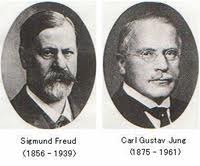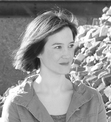In Your Dreams
On Monday, I touched on the research on how we dream and some of the proposed purposes of dreaming. A lot of you shared some really cool dreams you've had, and it's clear a lot of us have some similar dreams. I think it's hard to argue that dreams are utterly meaningless and random--it's obvious they're not, right? I recognize an anxiety dream when I have one (oh, that interminable dream where I'm late for a meeting and can't ever get out of the house because I forget one thing after another ...). I recognize my mind's attempts to guess at future events. I recognize dreams that are no more than wishes for things I'll never have (and don't need, either).
Dream interpretation is an activity that's closely associated with psychoanalysis, a particular theoretical orientation* within the disciplines of psychiatry/psychology that finds its origins with Sigmund Freud. He thought that adult dreams are actually thickly disguised wishes from the unconscious, but that the actual dreamer probably didn't have access to their true meanings.<--that's why you need an analyst to tell you! And then Jung came along with all his archetypes ... which are for an entirely different post, I think.
 Freud and Jung were far from the first to attempt to interpret dreams, though. That practice goes back thousands of years and can be found in many cultures around the world. Regardless of how we interpret, we humans are fascinated by our dreams. Which is why they're so prevalent in fiction, right? There are many books that have been inspired by dreams (Frankenstein! Stuart Little! Jekyll and Hyde! Twilight!), and dreams are often used as devices in fiction.
Freud and Jung were far from the first to attempt to interpret dreams, though. That practice goes back thousands of years and can be found in many cultures around the world. Regardless of how we interpret, we humans are fascinated by our dreams. Which is why they're so prevalent in fiction, right? There are many books that have been inspired by dreams (Frankenstein! Stuart Little! Jekyll and Hyde! Twilight!), and dreams are often used as devices in fiction.
Except ... that doesn't always work. Here's an excellent post from the INTERN about some of the problems that can occur when writers use dream sequences in their manuscripts. The brilliant INTERN posits that dream sequences in stories are often redundant with actual events in the book, or they are magical delivery devices for essential plot information (essentially, cheating), or they are dumps ... of either whimsical writing or info (you really should go read her post--and the comments).
Still, I understand the draw. We're so intrigued by our own dreams, so why shouldn't they play a role in our stories? Really, what's wrong with a dream or two? What's the right way to include a dream? When is it okay? What do you think of dream sequences in books you've read? Have you ever written a dream sequence into a manuscript? Would you like to defend that choice, or would you like to slink away quietly now?
I kid. Don't you dare slink away. Answer my questions. *stares at you*
*I have a different theoretical orientation, if you're wondering.
Okay, now you can slink ... straight over to Deb's blog, where she'll tell you about the books that inspire her writing.
Dream interpretation is an activity that's closely associated with psychoanalysis, a particular theoretical orientation* within the disciplines of psychiatry/psychology that finds its origins with Sigmund Freud. He thought that adult dreams are actually thickly disguised wishes from the unconscious, but that the actual dreamer probably didn't have access to their true meanings.<--that's why you need an analyst to tell you! And then Jung came along with all his archetypes ... which are for an entirely different post, I think.
 Freud and Jung were far from the first to attempt to interpret dreams, though. That practice goes back thousands of years and can be found in many cultures around the world. Regardless of how we interpret, we humans are fascinated by our dreams. Which is why they're so prevalent in fiction, right? There are many books that have been inspired by dreams (Frankenstein! Stuart Little! Jekyll and Hyde! Twilight!), and dreams are often used as devices in fiction.
Freud and Jung were far from the first to attempt to interpret dreams, though. That practice goes back thousands of years and can be found in many cultures around the world. Regardless of how we interpret, we humans are fascinated by our dreams. Which is why they're so prevalent in fiction, right? There are many books that have been inspired by dreams (Frankenstein! Stuart Little! Jekyll and Hyde! Twilight!), and dreams are often used as devices in fiction. Except ... that doesn't always work. Here's an excellent post from the INTERN about some of the problems that can occur when writers use dream sequences in their manuscripts. The brilliant INTERN posits that dream sequences in stories are often redundant with actual events in the book, or they are magical delivery devices for essential plot information (essentially, cheating), or they are dumps ... of either whimsical writing or info (you really should go read her post--and the comments).
Still, I understand the draw. We're so intrigued by our own dreams, so why shouldn't they play a role in our stories? Really, what's wrong with a dream or two? What's the right way to include a dream? When is it okay? What do you think of dream sequences in books you've read? Have you ever written a dream sequence into a manuscript? Would you like to defend that choice, or would you like to slink away quietly now?
I kid. Don't you dare slink away. Answer my questions. *stares at you*
*I have a different theoretical orientation, if you're wondering.
Okay, now you can slink ... straight over to Deb's blog, where she'll tell you about the books that inspire her writing.
Published on February 22, 2012 03:21
No comments have been added yet.



